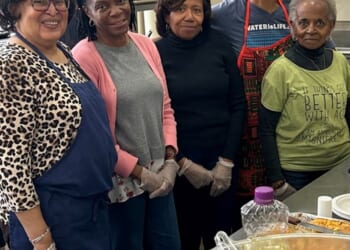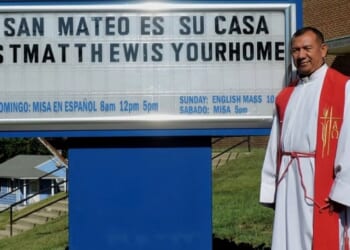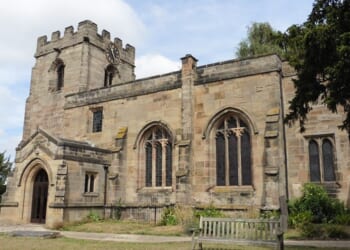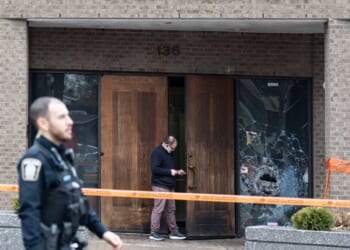LINCOLN diocesan synod has called on the House of Bishops to “proceed at pace” to implement stand-alone blessing services for same-sex couples.
On the same day, Saturday, the Bishop of Chelmsford, Dr Guli Francis-Dehqani, told her diocesan synod that she was “dismayed and disappointed” by recent decisions of the House of Bishops which have been decried by those seeking greater inclusion for LGBTQ+ people (News, 31 October).
In effect, the Lincoln motion asks the House of Bishops to reverse elements of their decision last month on the future of stand-alone services of blessing and other aspects of the Living in Love and Faith (LLF) process (News, 17 October).
The Bishops agreed that stand-alone services should not be introduced without a Canon B2 process in the General Synod. Owing to the two-thirds majority required, it is considered unlikely that they will receive final approval.
In his presidential address to the Lincoln synod, the Bishop, the Rt Revd Stephen Conway, noted that a final decision had not formally been made, and that this would take place at a meeting in December.
Owing to having Covid, Bishop Conway had been unable to attend the House of Bishops meeting when indicative votes were taken, he said. His address was read out by his chaplain, the Revd Nick Nawrockyi, because the Bishop was absent on health grounds.
The Rector of St Wulfram’s, Grantham, the Revd Stuart Cradduck, who proposed the motion, said that it was born out of “frustration” with the House of Bishops decisions.
It called on the Bishops to implement “all aspects of the Living in Love and Faith motion passed by the General Synod at its July 2024 Group of Sessions”. At that meeting, members voted narrowly in favour of proceeding with stand-alone services (News,12 July 2024).
 Muriel RobinsonFr Cradduck at the meeting of Lincoln diocesan synod
Muriel RobinsonFr Cradduck at the meeting of Lincoln diocesan synod
The Lincoln motion was carried in a vote by Houses: nem. con. by the bishop present (the Suffragan Bishop of Grantham, Dr Nicholas Chamberlain); 27-12 by the Clergy, with two recorded abstentions; and 22-17 by the Laity, with four recorded abstentions, Fr Cradduck said.
In his speech in favour of the motion, Fr Cradduck said that the House of Bishops had been given a “clear mandate” by the General Synod. “Delay is not neutrality; delay is a failure of leadership,” he said.
A diocesan spokesperson said that it had been a “respectful debate”, with a “wide range of lay and ordained voices speaking with integrity and sensitivity. It is a testament to our commitment to collaborative ministry in the Diocese of Lincoln. We would like to thank everyone who chose to be part of this important debate.”
IN HER presidential address in Chelmsford, Dr Francis-Dehqani referred to the long process, first the “Shared Conversations” and then LLF.
“I know that many people feel we have not only made no progress, but have in fact gone backwards,” she said. “Whatever the rights and wrongs, LGBT+ people have been failed. I’m sorry about that, and I regret it bitterly.”
She suggested that it was “healthy” for bishops to speak more openly about their views on the subject, and made clear that she wanted to see “greater freedom for clergy, if they choose, to offer blessings to same-sex couples and, for gay and lesbian clergy themselves, to be able to enter into same-sex marriages without fear of sanctions”.
Blessings for same-sex couples are currently permitted in regular services, but cannot be used in specially organised services. The rationale for this, according to advice given to the Bishops by the Faith and Order Commission, was that there was a danger, especially when used in a “bespoke” service, that the blessings “communicate ecclesial endorsement of a couple’s relationship as a whole, including its sexual dimension” (News, 14 November).
But Dr Francis-Dehqani questioned this distinction in her address. “I cannot see how there is any theological difference between Prayers of Love and Faith being offered in scheduled services (as, I’m pleased, has been commended by the House of Bishops) and in bespoke services which have not been commended, though I do accept that for now there are limitations around how the prayers can be offered,” she said.
















